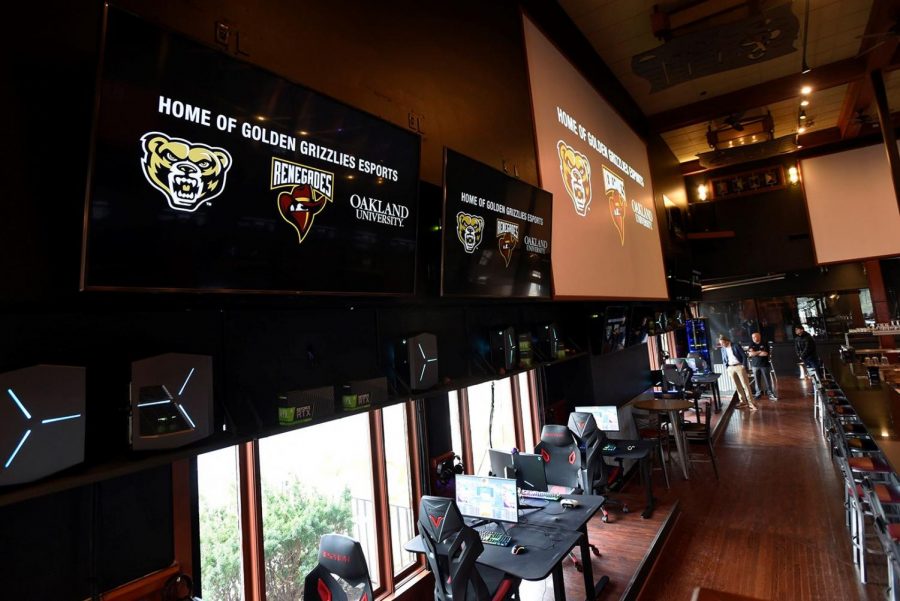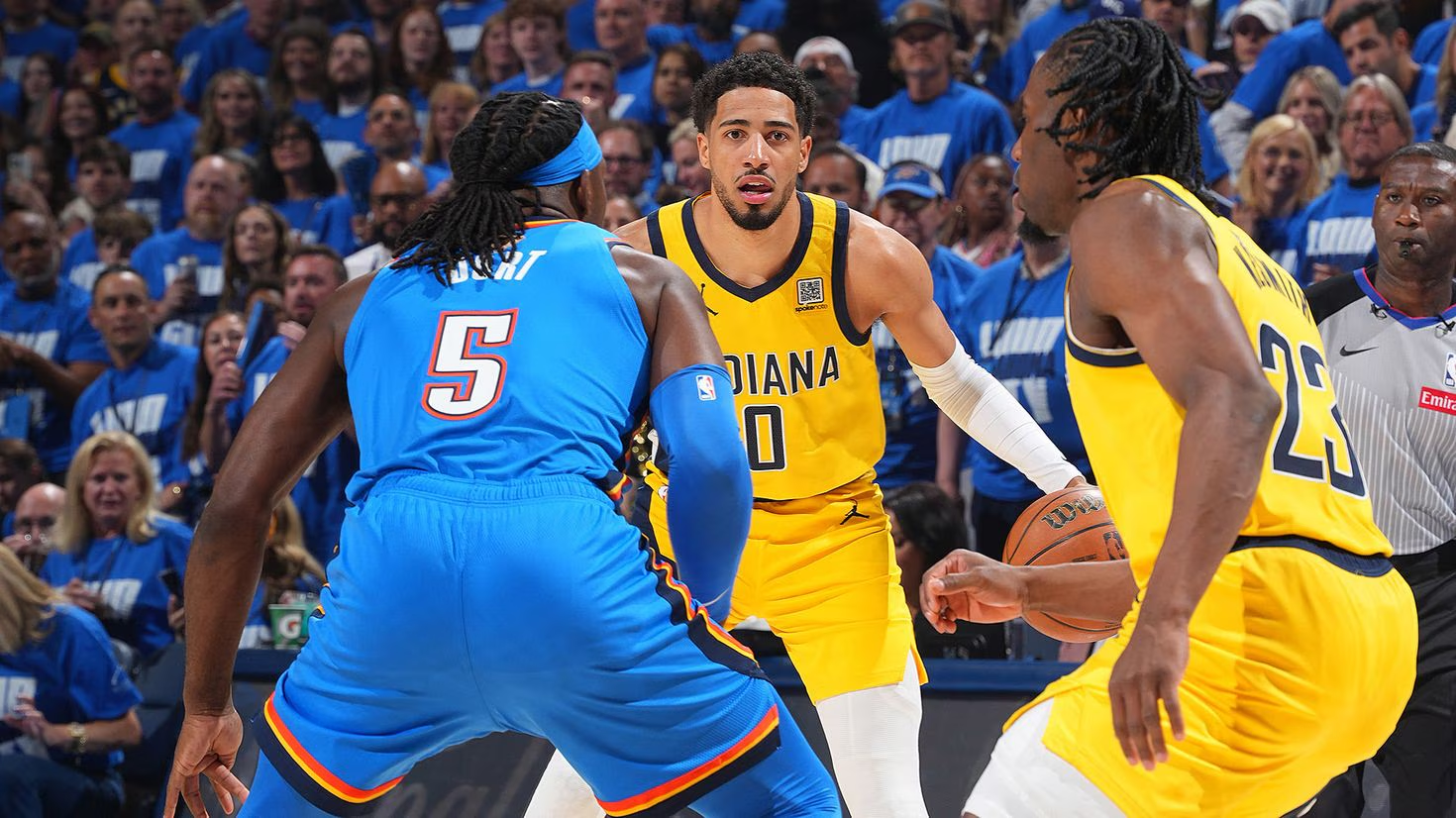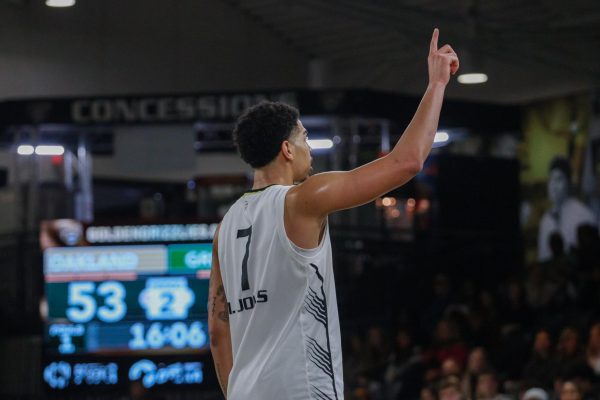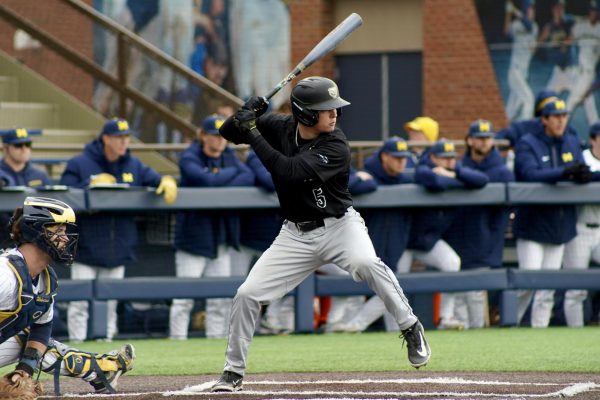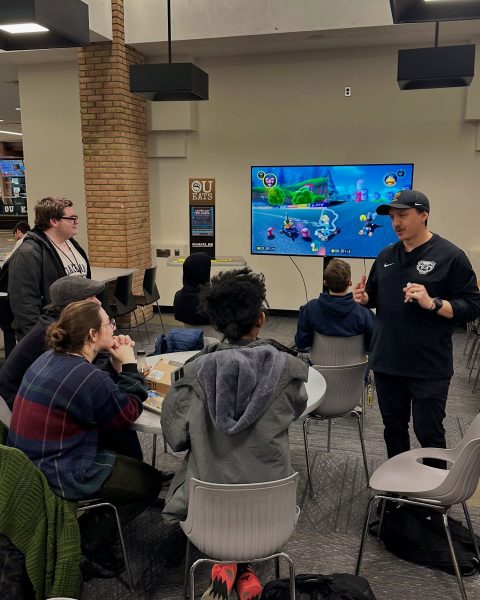Oakland esports announces inaugural teams
The inaugural Oakland University esports teams were announced over a three-week span in July-August.
All three teams — League of Legends, Rocket League and Super Smash Bros. — are filled and players have profiles on goldengrizzlies.com.
The League of Legends team has six players, the Rocket League team will have five and the Super Smash Bros. team will have three players. Approximately 250 people applied to be on the teams, and 52 tried out.
One Rocket League player, Eddy Azzam, is currently in the top 100 of all players in the United States, with his teammates also in the top 5% in the nation. All League of Legends players are also in the top 2% in North America.
Head Coach Carl Leone has experience as a former League of Legends player and coach at Aquinas College, so he was very hands-on in the recruiting and scouting process.
“My experience is in League of Legends, that’s the one game that I’m most knowledgeable about,” Leone said. “What I was looking for were players that had good, strong game knowledge and good communication skills.”
For Rocket League and Smash, Leone consulted former colleagues and people in his network to help determine what made the best player for each game.
“I never played Rocket League or Smash at the competitive level up to that top 1%, so I didn’t see it being fair for me to take a swing at who I thought would be the best at tryouts,” he said. “In Rocket League we were looking for players that had a lot of communication.”
The three versus three car-soccer game that is one of the most popular esports demands good communication between all three players, according to Leone.
In order to figure out who would be the best fit, Leone and his team recorded their game chat during tryouts and listened to it afterward, determining which players were best for a team-oriented game.
“In a sense, you’re kind of blindsided, you don’t always see where your teammates are at,” Leone said. “For the team to be communicating all the time precisely — and not wasting time — it’s very important.”
Communication skills were a top priority for the coaching staff, but another intangible trait that Leone and his staff looked for was the attitude of players when things aren’t going well.
“You have to look at how players react when they’re losing,” he said. “There’s certain qualities you can’t really teach. It’s the mentality of ‘all I care about is figuring out what the next right thing to do is and making my team do that thing, too.’ There’s only a small amount of players that will actually do that.”
With COVID-19 affecting large gatherings and traveling, Leone anticipates that most tournaments will remain strictly remote, in contrast to the typical structure where semifinals and finals are in stadiums.
Now that teams are finalized, Leone expressed optimism in each team’s balance of personalities and playstyles.
“They’re incredibly talented players, ” he said. “They’re strong mentally as well. They’ll do well in school as well as on the rift playing League of Legends, Rocket League and Smash as well. ”



